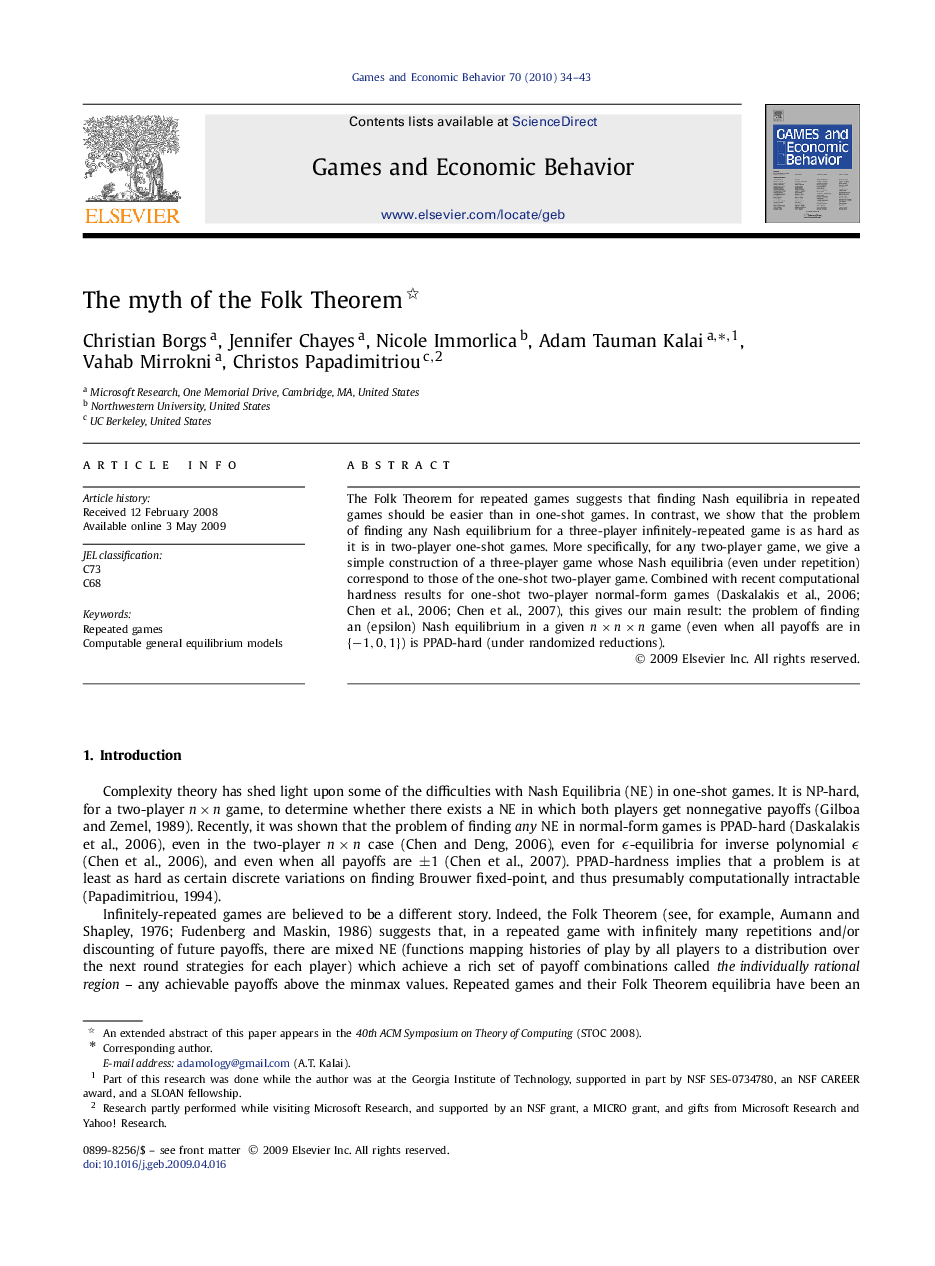| Article ID | Journal | Published Year | Pages | File Type |
|---|---|---|---|---|
| 5072394 | Games and Economic Behavior | 2010 | 10 Pages |
Abstract
The Folk Theorem for repeated games suggests that finding Nash equilibria in repeated games should be easier than in one-shot games. In contrast, we show that the problem of finding any Nash equilibrium for a three-player infinitely-repeated game is as hard as it is in two-player one-shot games. More specifically, for any two-player game, we give a simple construction of a three-player game whose Nash equilibria (even under repetition) correspond to those of the one-shot two-player game. Combined with recent computational hardness results for one-shot two-player normal-form games (Daskalakis et al., 2006; Chen et al., 2006; Chen et al., 2007), this gives our main result: the problem of finding an (epsilon) Nash equilibrium in a given nÃnÃn game (even when all payoffs are in {â1,0,1}) is PPAD-hard (under randomized reductions).
Related Topics
Social Sciences and Humanities
Economics, Econometrics and Finance
Economics and Econometrics
Authors
Christian Borgs, Jennifer Chayes, Nicole Immorlica, Adam Tauman Kalai, Vahab Mirrokni, Christos Papadimitriou,
